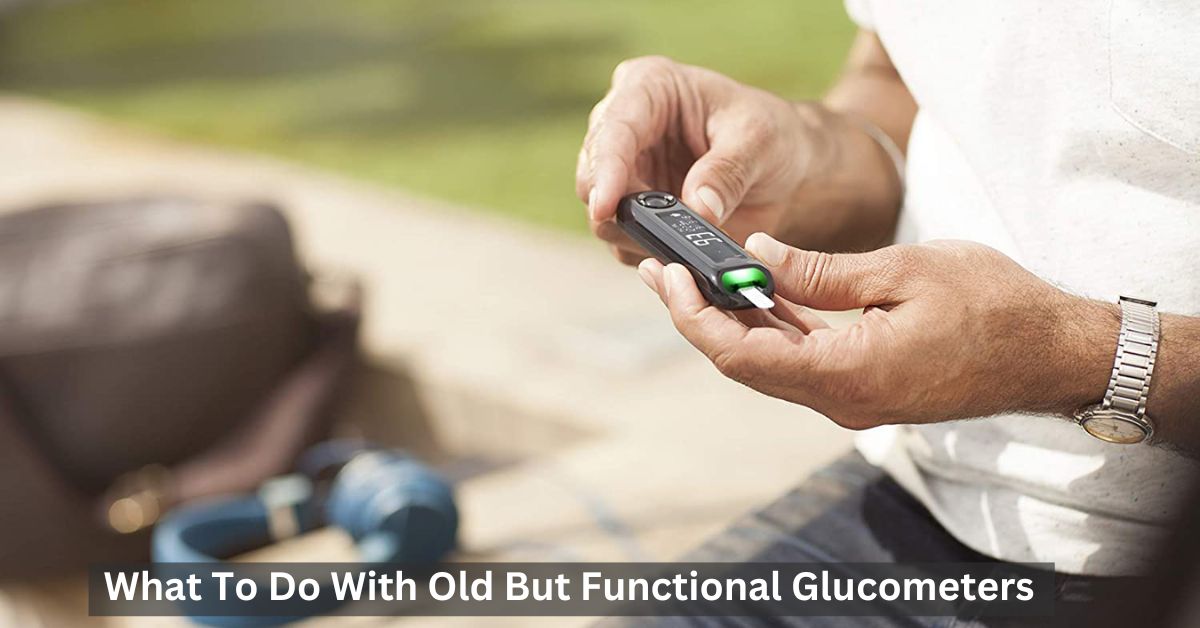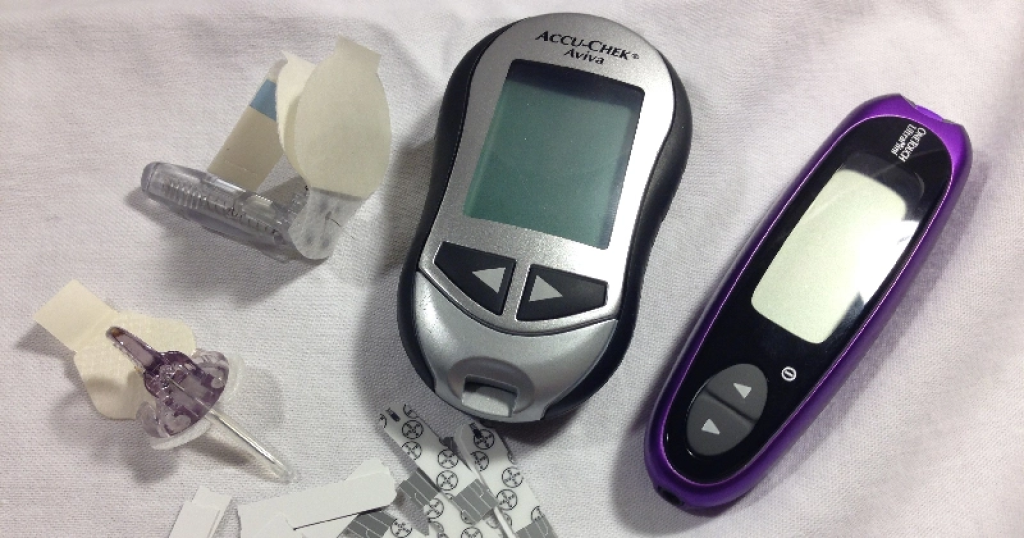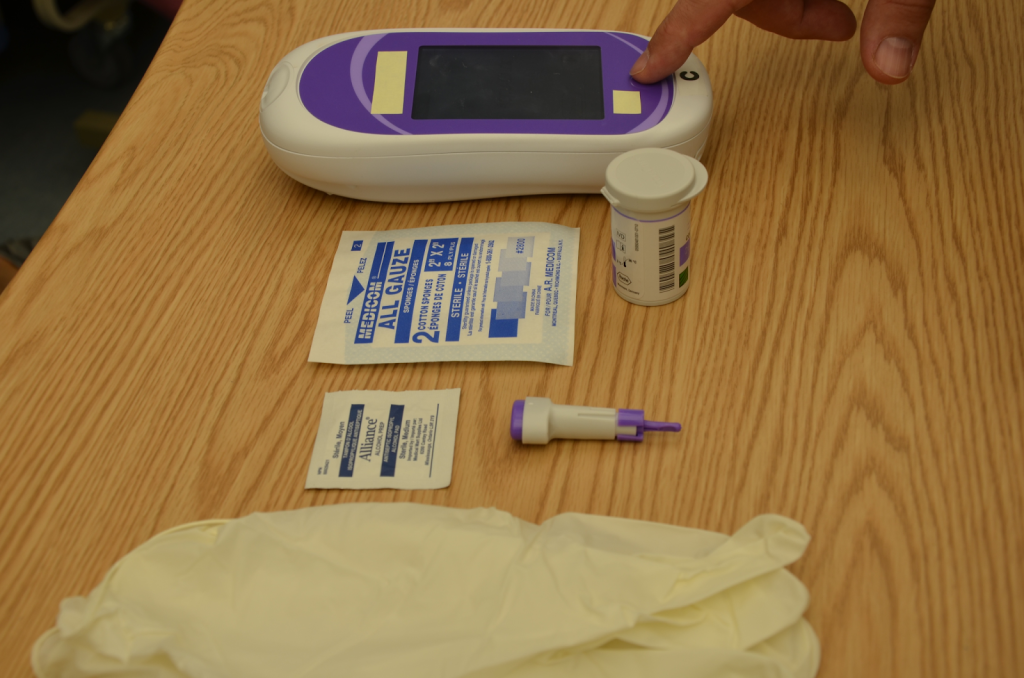
Are you wondering what to do with old but functional glucometers? Instead of letting them collect dust or disposing of them, there are numerous creative ways to repurpose these devices. Whether you have upgraded to a new model or simply no longer need your glucometer, this article presents innovative ideas to breathe new life into them. Not only will you find ways to benefit others, but you’ll also contribute to a sustainable environment. So, let’s dive into the exciting possibilities!
What to Do with Old but Functional Glucometers

Are you unsure of what to do with your old but functional glucometers? Don’t fret! There are plenty of exciting and meaningful ways to give these devices a new purpose. Let’s explore some innovative ideas that will not only benefit others but also contribute to a greener environment.
Recycling Glucometers for a Greener Tomorrow

If you’re concerned about environmental sustainability, recycling your old glucometers is an excellent option. By properly disposing of electronic waste, you can help minimize the impact on our planet. Here’s how you can go about it:
1. Exploring E-Waste Recycling Programs:
Many cities and towns have specialized programs that accept electronic devices for recycling. Research local recycling facilities or contact your municipality to find out about the nearest e-waste collection points.
2. Locating Local Recycling Centers:
Look for dedicated recycling centers that accept electronic devices. These centers have the necessary infrastructure to handle the proper disposal of glucometers and other electronic items.
3. Following Proper Disposal Guidelines:
When recycling your glucometers, it’s crucial to follow the disposal guidelines provided by the recycling center or program. This ensures that the devices are dismantled safely and the materials are recycled responsibly.
Donating Glucometers to Charitable Organizations

Another wonderful option is to donate your old glucometers to charitable organizations that focus on healthcare initiatives. By doing so, you can make a significant impact on the lives of individuals who may not have access to these essential devices. Consider the following:
1. Connecting with Non-Profit Healthcare Initiatives:
Research non-profit organizations that work with diabetic communities or provide healthcare support. Reach out to them and inquire about their donation policies for glucometers.
2. Supporting Diabetic Communities and Research:
Look for organizations that aim to support individuals living with diabetes or contribute to diabetes research. By donating your old glucometers, you can help enhance their programs and initiatives.
Also Read : Best Glucose Meter With Cheapest Strips: An Comprehensive Guide
Transforming Glucometers into Unique Crafts

If you’re feeling creative and enjoy crafting, repurposing your old glucometers into unique and stylish items is a fantastic idea. Not only will you give your devices a new lease on life, but you’ll also have one-of-a-kind creations to showcase. Check out these crafty suggestions:
1. Creating Glucometer Jewelry and Accessories:
Turn your glucometer into wearable art! Use colorful beads, chains, and other jewelry-making supplies to transform your device into a necklace pendant or a stylish bracelet charm.
2. Designing Glucometer Artwork and Decorations:
Let your artistic flair shine by incorporating your glucometer into artwork or decorations. Attach it to a canvas and create a mixed-media masterpiece or use it as a unique focal point for a decorative display.
3. Crafting Glucometer Keychains and Magnets:
Add a touch of functionality and style to your keys or refrigerator with a glucometer keychain or magnet. Decorate the device with vibrant colors or personalized designs to make it truly your own.
Repurposing Glucometers for Educational Purposes

Glucometers can also serve as valuable educational tools. By donating them to schools, science centers, or organizing workshops, you can raise awareness about diabetes and help educate others. Consider these options:
1. Donating Glucometers to Schools and Science Centers:
Contact local educational institutions or science centers and offer to donate your old glucometers. They can use them to teach students about diabetes, glucose monitoring, and the importance of maintaining a healthy lifestyle.
2. Organizing Diabetes Awareness Workshops:
Take the initiative to organize workshops or seminars on diabetes awareness in your community. Use your old glucometers as demonstration tools, allowing participants to understand how the devices work and why they are crucial for diabetes management.
Upcycling Glucometers into Innovative Gadgets
Why not repurpose your old glucometers into useful gadgets that serve a different purpose? By giving them a new function, you can unleash your creativity and make something truly unique. Here are a couple of ideas to get you started:
1. Turning Glucometers into Digital Thermometers:
With a little tinkering and some technical know-how, you can repurpose your glucometer into a digital thermometer. This can be especially handy for monitoring body temperature or taking ambient temperature readings in your home.
2. Modifying Glucometers for Blood Pressure Monitoring:
Explore the possibility of modifying your old glucometers to measure blood pressure. By incorporating additional sensors and calibrating the device, you can create a multi-functional health monitoring tool.
Using Glucometers as Backup Devices
Even if you have upgraded to a new glucometer, it’s always a good idea to have a backup device on hand. Your old but functional glucometer can serve as a reliable spare in case of emergencies or if your primary device malfunctions. Consider the following:
1. Keeping Spare Glucometers for Emergencies:
Store your old glucometer in a safe place as a backup in case your new one becomes damaged or is temporarily unavailable. This ensures that you can continue monitoring your blood glucose levels without interruption.
2. Creating Travel or Work Kits:
If you frequently travel or work in different locations, assemble a compact kit containing your old glucometer, extra test strips, lancets, and any other necessary accessories. This portable kit ensures that you can manage your diabetes care wherever you go.
Also Read : Best Glucometer For Home Use 2023
Sharing Glucometers within Your Community
Consider setting up a glucometer-sharing program within your community to benefit individuals who may not have access to these devices. Sharing resources is a wonderful way to support one another and create a sense of community. Here’s how you can do it:
1. Setting Up a Glucometer Sharing Program:
Collaborate with local healthcare centers, community organizations, or support groups to establish a glucometer lending program. Collect donations of old but functional glucometers and create a system for borrowing and returning the devices.
2. Offering Temporary Use to Friends or Neighbors:
If you know someone in your community who needs a glucometer temporarily, offer to lend them your old device. This gesture of kindness can make a significant difference in their diabetes management and overall well-being.
Repurposing Glucometers for Pet Care
Did you know that glucometers can be utilized to monitor blood glucose levels in pets, especially those with diabetes? By repurposing your old glucometer for pet care, you can assist pet owners and support veterinary clinics. Consider these options:
1. Monitoring Blood Glucose Levels in Pets:
Work closely with your veterinarian to understand the specific requirements for monitoring blood glucose levels in pets. With their guidance, you can repurpose your old glucometer to help pet owners monitor and manage their furry friends’ diabetes.
2. Assisting Veterinary Clinics and Animal Shelters:
Contact local veterinary clinics or animal shelters to inquire about their needs for glucometers. Donating your old device can help support their efforts in caring for animals with diabetes or conducting research related to pet health.
Trading or Selling Your Old Glucometers
If your old glucometers are still in good working condition, you might consider trading or selling them. This allows you to pass on the devices to someone who needs them while potentially recouping some of your investment. Here’s how you can go about it:
1. Online Platforms for Selling Used Glucometers:
Explore online marketplaces or platforms dedicated to buying and selling medical equipment. Take clear and accurate photos of your old glucometer, write a detailed description, and set a fair price. Be sure to follow any safety guidelines and recommendations provided by the platform.
2. Exchanging Glucometers for Other Medical Devices:
Connect with individuals or organizations who might be interested in trading your old glucometer for other medical devices or supplies that you may need. This can be a mutually beneficial arrangement, allowing both parties to acquire necessary equipment without additional costs.
FAQs (Frequently Asked Questions)
1. Can I donate my old glucometer if it’s not in perfect condition?
Yes, many organizations accept glucometers in various conditions. It’s best to contact them directly to inquire about their acceptance criteria.
2. Is it safe to recycle glucometers?
Yes, recycling glucometers is safe and environmentally responsible. However, make sure to follow the specific disposal guidelines provided by the recycling center or program.
3. Are there any restrictions on donating glucometers to charitable organizations?
Some organizations may have specific requirements, such as requesting devices that are not expired or requesting a certain model. Contact the organization beforehand to ensure that your donation meets their criteria.
4. Can I repurpose my old glucometer without any technical skills?
Absolutely! Repurposing glucometers into crafts or decorations often requires minimal technical skills. There are plenty of DIY tutorials available to guide you through the process.
5. Are there any legal considerations when selling or trading old glucometers?
It’s important to familiarize yourself with local regulations and laws regarding the sale or exchange of medical devices. Research applicable guidelines or consult with professionals to ensure compliance.
6. How can I find local glucometer-sharing programs in my community?
Reach out to local healthcare centers, diabetes support groups, or community organizations. They can provide information about existing glucometer lending programs or guide you in setting up one.
Conclusion
When faced with the question of what to do with old but functional glucometers, the possibilities are truly exciting. From recycling and donating to repurposing and sharing, there are numerous ways to give these devices a new purpose and make a positive impact. By embracing creativity, compassion, and environmental responsibility, you can contribute to a greener tomorrow and support those in need. So, instead of letting your old glucometers gather dust, choose one of these ideas and embark on a fulfilling journey of repurposing and giving back.





